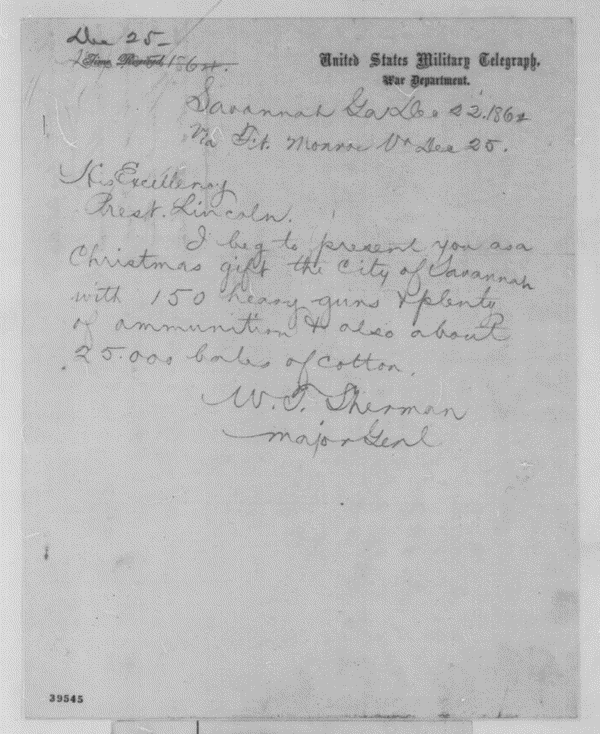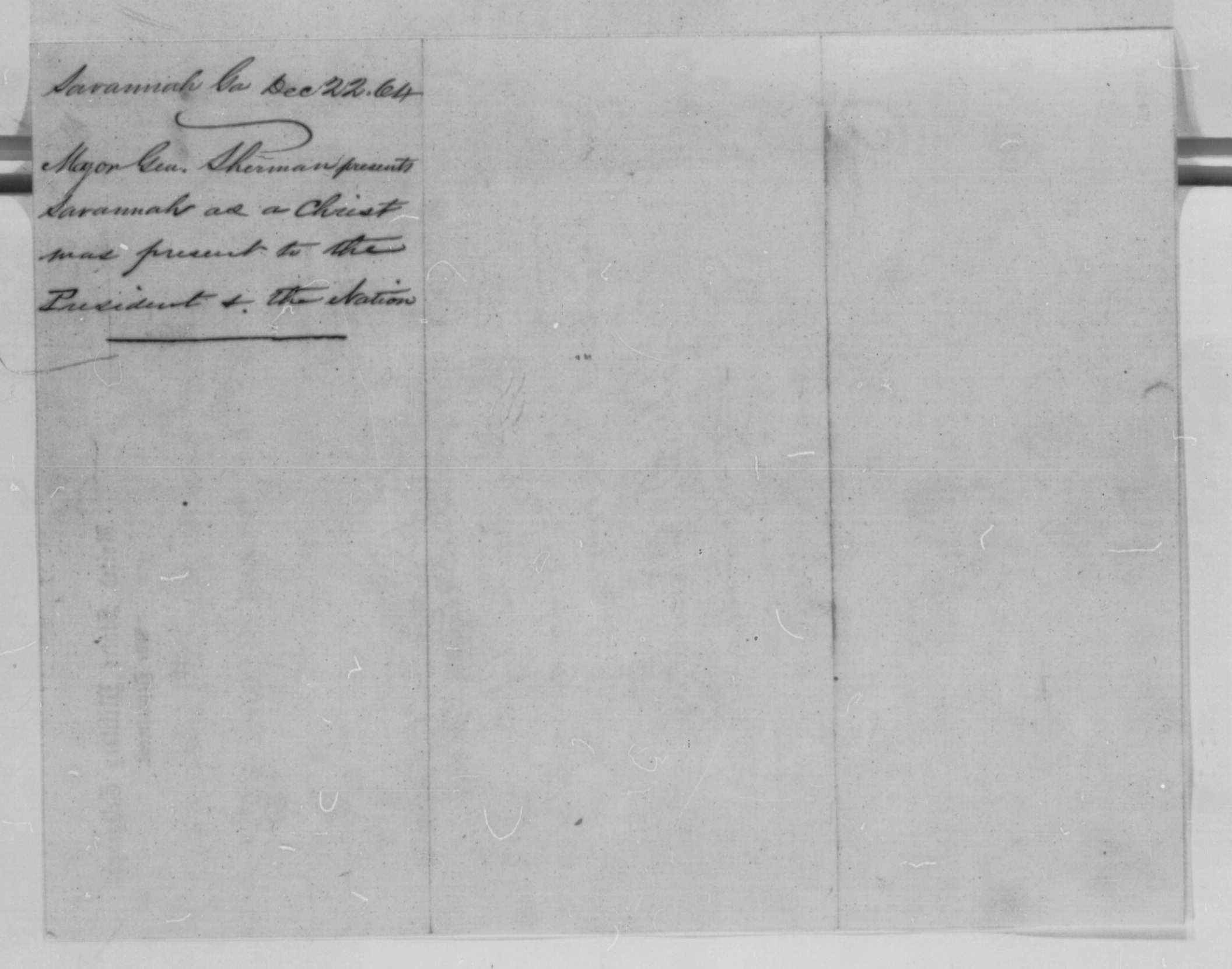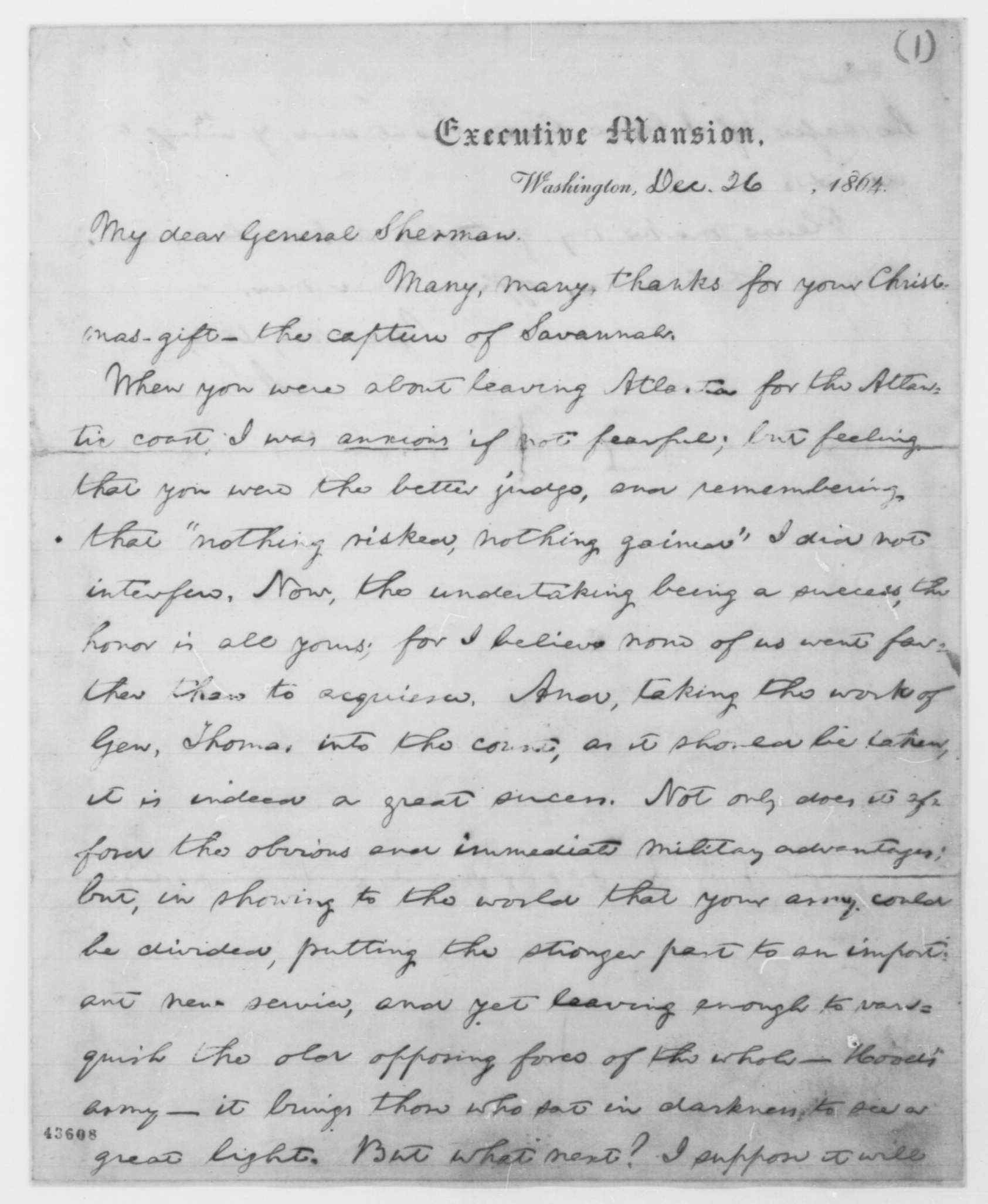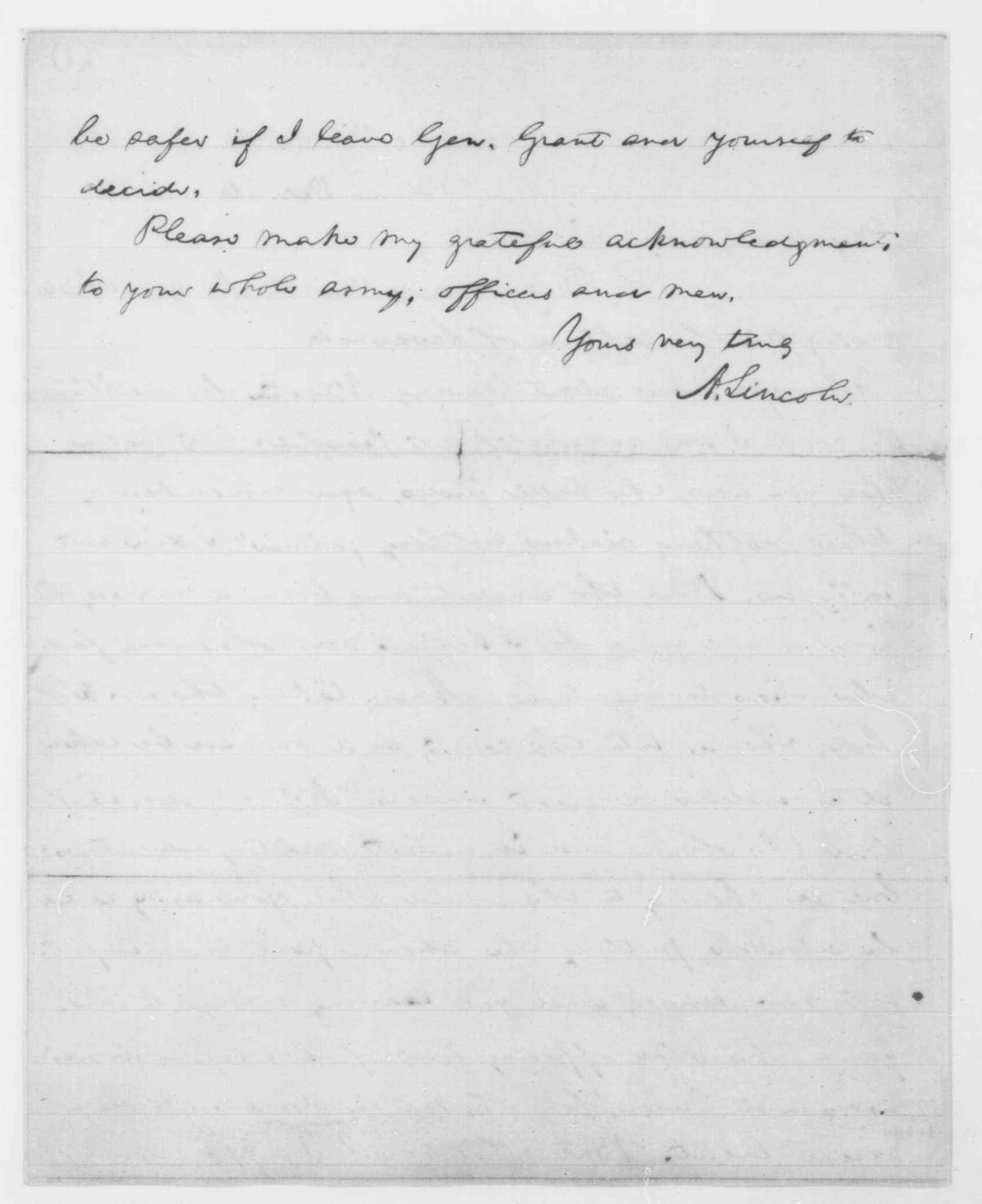Merry Christmas, Abe! The
Today is the 151st anniversary of one of the greatest humble brags and badass one-liners in history; from when Major General William Tecumseh Sherman sent President Abraham Lincoln a telegram that he had taken the city of Savannah, GA:
"I beg to present you as a Christmas gift the city of Savannah with 150 heavy guns and plenty of ammunition, and also about twenty-five thousand bales of cotton."
General Sherman and his troops reached the outer defenses of Savannah, GA, the ending destination of his "March to the Sea," on December 10, 1864. Following the the capture of Atlanta, Sherman started his march, cutting the northern and southern halves of the Confederate Army off from one other and taking out key Southern military and infrastructure assets, including railroads, bridges, factories, and warehouses. Basically all the basic ingredients for a 1970s Springsteen anthem. He headed his troops to Savannah because it was a key port city; Sherman and his men were in desperate need of supplies, and required a place to meet Union supply ships.
Union Troops Removing Ammunition from Fort McAllister. Photograph by Samuel A. Cooley, December 1864. Library of Congress.
Confederate troops had flooded the rice fields surrounding Savannah before Sherman's arrival, so his approach to the city was blocked. So, Sherman ordered part of his army, under the command of Major General O. O. Howard. to ride south and capture Fort McAllister, a Confederate fort along the Ogeechee River, where Union ships could sail into from the Atlantic. The fort fell after only fifteen minutes, on December 13th; Sherman now had access to resupplies, and the siege resources and artillery he needed to take Savannah. Before taking action against the city, however, Sherman sent Confederate Lieutenant General William J. Hardee a message, offering Savannah a chance to surrender before he unleashed his forces:
"I have already received guns that can cast heavy and destructive shot as far as the heart of your city; also, I have for some days held and controlled every avenue by which the people and garrison of Savannah can be supplied, and I am therefore justified in demanding the surrender of the city of Savannah, and its dependent forts, and shall wait a reasonable time for your answer, before opening with heavy ordnance. Should you entertain the proposition, I am prepared to grant liberal terms to the inhabitants and garrison; but should I be forced to resort to assault, or the slower and surer process of starvation, I shall then feel justified in resorting to the harshest measures, and shall make little effort to restrain my army—burning to avenge the national wrong which they attach to Savannah and other large cities which have been so prominent in dragging our country into civil war."
From the "Memoirs of W. T. Sherman, Written by Himself."
Hardee, rather than accepting Sherman's offer, escaped with his troops December 20th, crossing the Savannah River on a pontoon bridge into South Carolina. Now defenseless, the mayor of Savannah, Richard Arnold, surrendered the city to the Union Army on December 21st.
Lincoln responded to Sherman's cheeky telegram celebrating the victory the day after Christmas, on December 26th:
"My dear General Sherman.
Many, many thanks for your Christmas gift – the capture of Savannah. When you were leaving Atlanta for the Atlantic coast, I was anxious, if not fearful; but feeling that you were the better judge, and remembering that 'nothing risked, nothing gained' I did not interfere. Now, the undertaking being a success, the honor is all yours; for I believe none of us went farther than to acquiesce. And taking the work of Gen. Thomas into the count, as it should be taken, it is indeed a great success. Not only does it afford the obvious and immediate military advantage; but, in showing to the world that your army could be divided, putting the stronger part to an important new service, and yet leaving enough to vanquish the old opposing force of the whole—Hood's army—it brings those who sat in darkness, to see a great light. But what next? I suppose it will be safer if I leave Gen. Grant and yourself to decide. Please make my grateful acknowledgements to your whole army, officers and men."
"Gen. Sherman Reviewing His Army in Savannah Before Starting on His New Campaign." Sketch by William Waud, December 1864-January 1965. Library of Congress.
Sherman's victory in Savannah would ultimately be one of the final nails in the coffin of the Confederacy; the war was over only four short months later. Sherman's campaign through Georgia took on an image of mythic proportions--think of Scarlett escaping the burning Atlanta in Gone With the Wind. The South demonized Sherman, depicting him blazing his path, unnecessarily and wantonly through the state. Only the innumerable charms of Savannah could stop him, hence the city being spared. The North saw Sherman as rightly punishing the greedy South, which had prolonged a selfish and unconstitutional war; and expediting that war's finish. For a third, highly specific demographic; Caitlin's grandmother, a feisty, and very liberal, southern belle originally from North Carolina, often states that Georgia was and is an awful, backwards place, and therefore "Sherman should have done a better job and burned it all. And taken Mississippi out with it." (The Archive Gals love Bop, and believe elegant ladies pushing 90 can believe and say whatever they want; but do not condone this viewpoint, and have spent many happy hours in Georgia, and with friends from there. Mississippi seems nice too)
"Sherman's March to the Sea" by F. O. C. Darley, 1883. Library of Congress.
The historic record, however, is now beginning to shift its views on Sherman's March to the Sea. While Sherman was trying to show Confederate citizens the cost of war, to convince them to stop enlisting and supporting the war effort; his orders were to forage liberally, but not to enter private homes, and steer away from less fortunate properties. Some exceeded the bounds of these orders, to be sure, but in many places the destruction caused by Sherman and his men was exaggerated. Many believe Sherman burned all of Atlanta to ash, but in fact, half the city remained standing. With substantially less food, and the mills and factories needed for the production; Georgia was certainly crippled, but most, like the beautiful city of Savannah, was left standing, and ready to recover when the end of the war finally came.
*Images of Sherman's telegram and Lincoln's subsequent letter to Sherman come from The Abraham Lincoln Papers at the Library of Congress.



